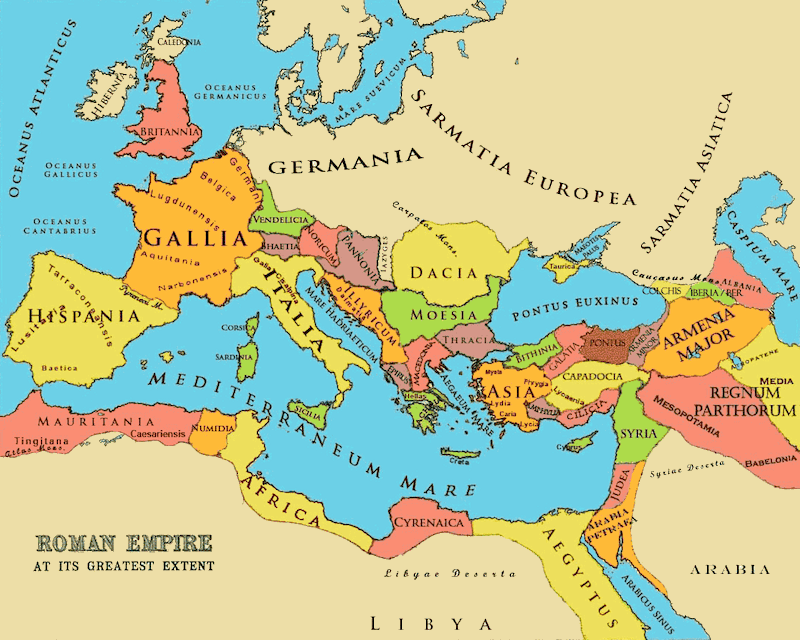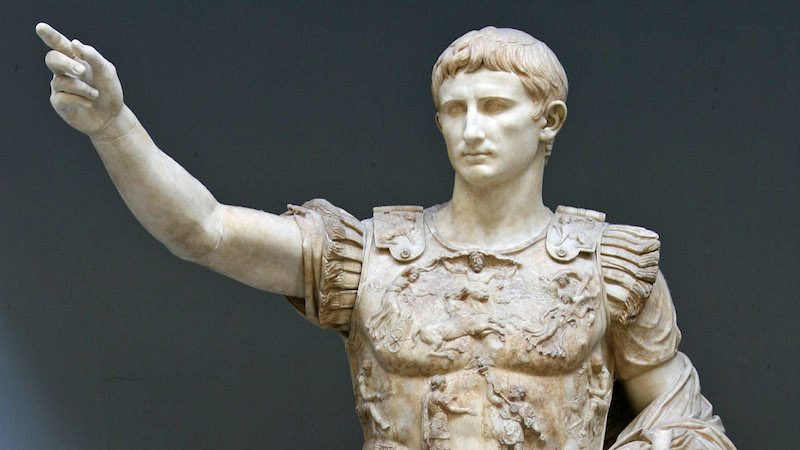Julio-Claudian dynasty
Episode #2 of the course “Most powerful families in history”
The Julio-Claudian dynasty ruled the ancient Roman Empire from 27 BCE to 68 CE and includes the five emperors Augustus, Tiberius, Caligula, Claudius, and Nero. Ancient Roman politics were treacherous, so the family’s rule was never passed from father to son. These emperors were often related through several generations’ difference, by marriage, or by adoption. Each emperor ruled differently, but all generally attempted to retain power over the Roman Senate.
 Augustus, Tiberius, Caligula, Claudius, and Nero
Augustus, Tiberius, Caligula, Claudius, and Nero
Augustus Caesar was Julius Caesar’s adopted son. He gained control of the empire in 27 BCE and was responsible for expanding it into Spain, Germany, and Africa. His rule is generally considered a time of peace and prosperity for ancient Rome, ending with his death in 14 CE.
Augustus’ stepson, Tiberius, maintained Rome as a largely peaceful state during his reign. He did not spend money building great monuments or waging war, so he is sometimes considered the most frugal of the ancient rulers. He died in 37 CE.
 Map of the Roman Empire at it’s Height
Map of the Roman Empire at it’s Height
A grand-nephew of Augustus, Gaius Germanicus, then took power, and he would go on to be known as Caligula. He ruled Rome extravagantly and enjoyed spending the Roman treasury on lavish events, feasts, and territorial battles. Considered oppressive and power-hungry, Caligula was assassinated in 41 CE.
Caligula’s uncle Claudius peacefully ruled from 41 CE to 54 CE. He was effective (although inexperienced and somewhat manipulated by his wives and counselors). He organized one of the most famous public naval battle spectacles in 52 CE, which included over 100 ships and 20,000 men. Claudius’ death in 54 CE is suspected to be an assassination, although debate continues.
The last emperor of the Julio-Claudian dynasty was Nero, who was Claudius’ grandnephew. He took the throne at 17 years old, and he was considered more of an artist than a warrior. It is rumored that he played the fiddle during the infamous Roman fire in 64 CE, but that is likely untrue. Afterwards, he spent vast amounts rebuilding the city, restoring its prosperity. Nero committed suicide in 68 CE, ending the family’s rule.
Share with friends

